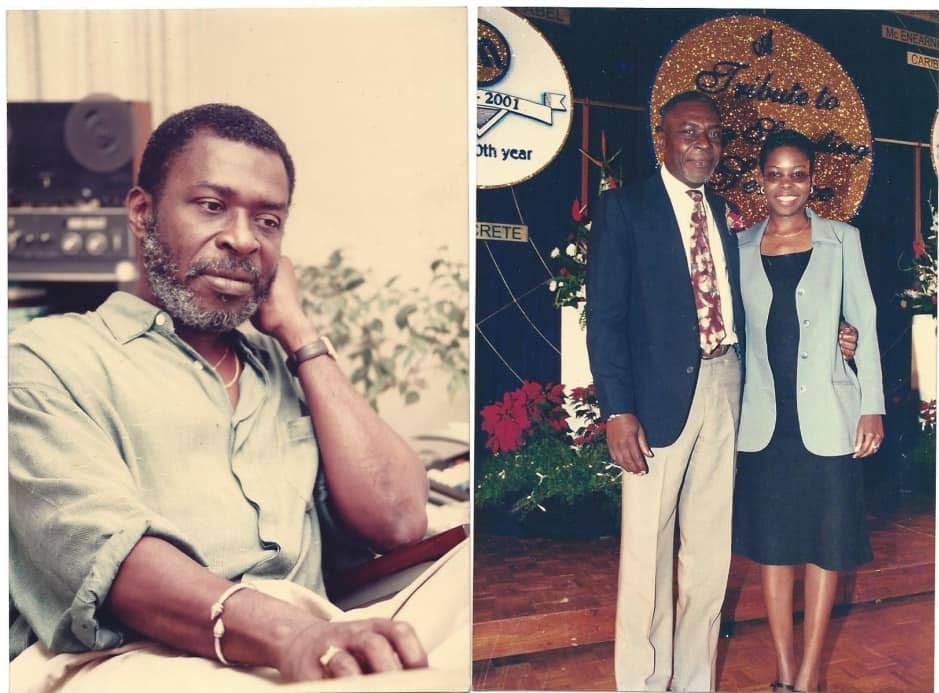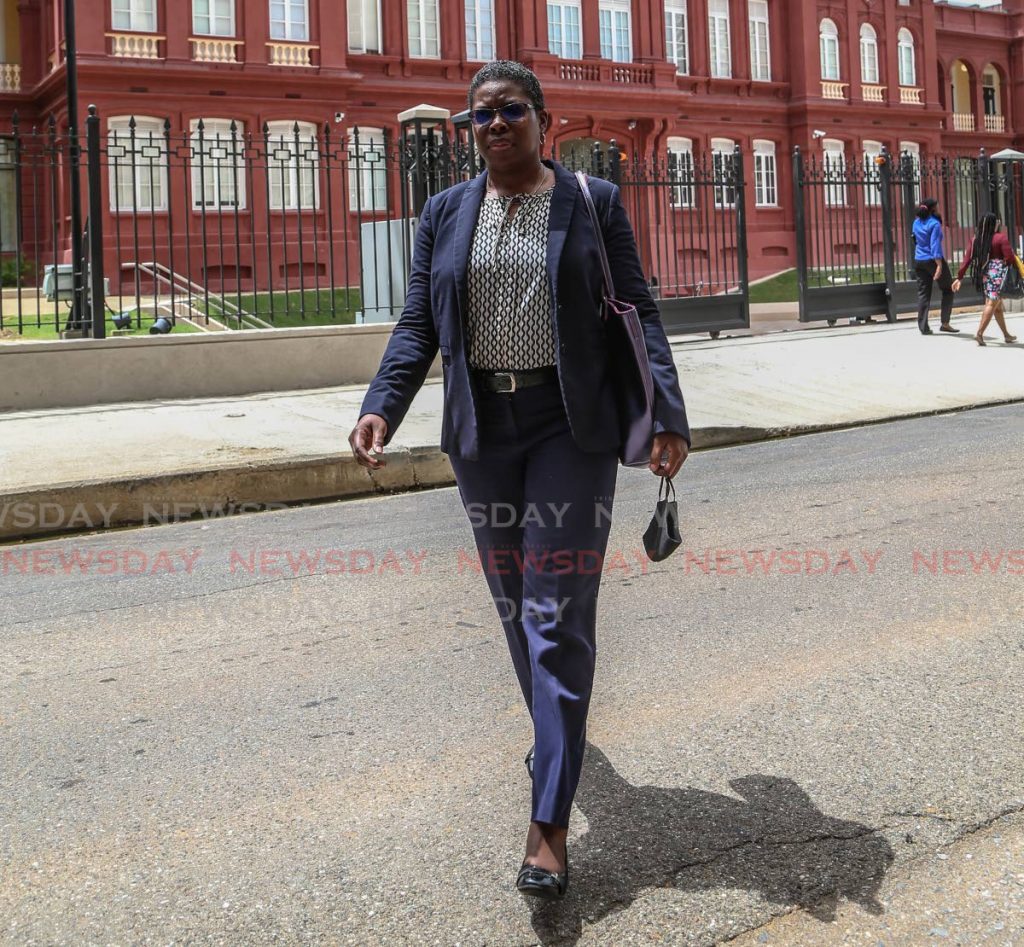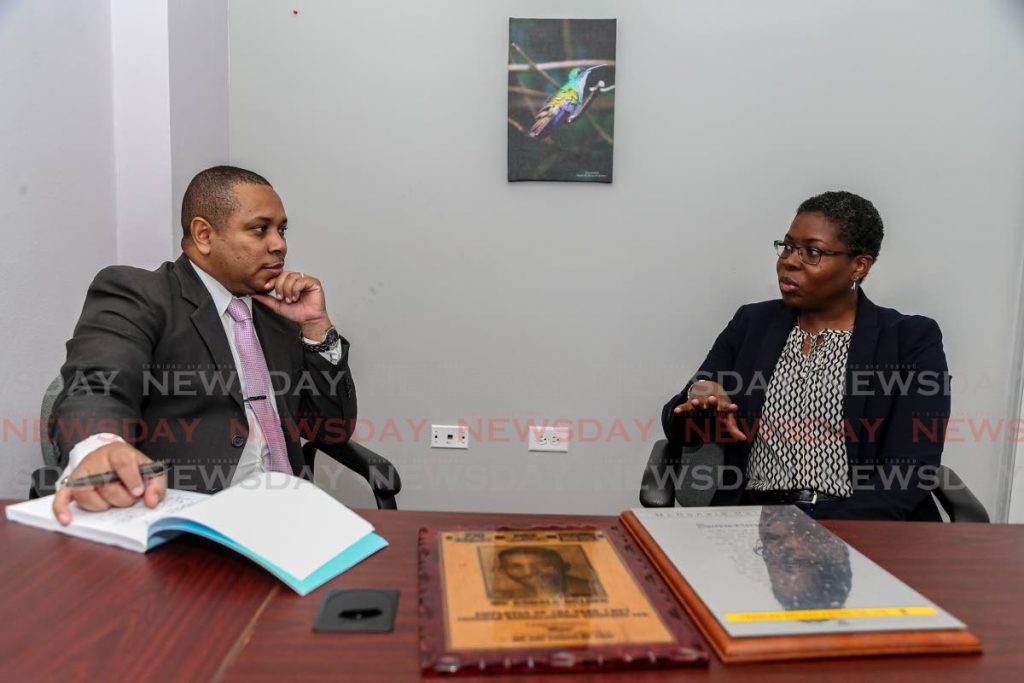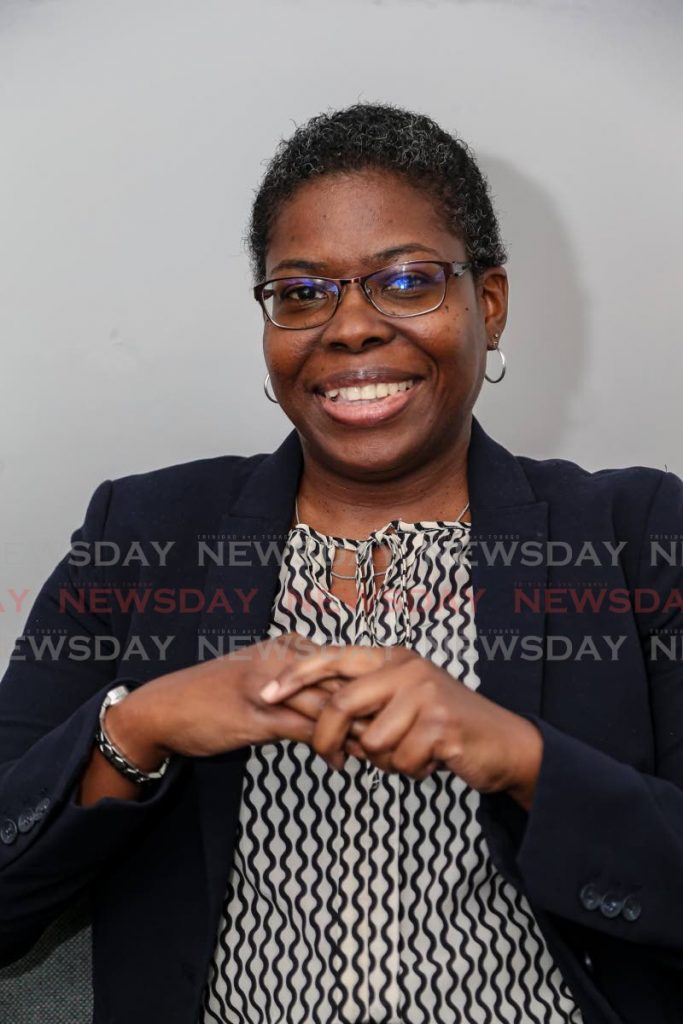My father’s trauma

DURING the turbulent days of the attempted coup in 1990, many families locked themselves away in their homes, including 18-year-old Colleen Holder, her sister, mother and grandmother.
The family had no idea that Holder’s father was one of the hostages being held at Radio Trinidad.
Holder described her father, the late Mc Donald Holder, as “a really nice person,” though he had his flaws, like everyone else.
“I knew that he loved us. And he knew that we loved him. So even though there were times when we really didn’t get along, he and my mother remained very good friends throughout their life.”
When her father was about 18, her grandfather moved the family from Tobago to Trinidad.
Her father spent most of his adult life working at Radio Trinidad, starting as an intern in the early 1960s. He was well respected by his colleagues, and he helped a lot of people.
“I got into media because of him. I cut my teeth (at Radio Trinidad).” Holder also previously worked as a producer and presenter at CCN TV6 and is now director of corporate communications and productions at Parliament.
Her father was chief technical officer by the time he died in 2006 from prostate cancer at 61.

Back in July 1990, he was 44 and was senior technical officer at Radio Trinidad. Holder and her sisters lived with her mother, and her father lived with his girlfriend. Though she did not have daily contact with him, she knew he was at work at Radio Trinidad. On the night of the attempted coup, Holder and her friends were at a friend’s house preparing to go to a party.
“And when we saw Abu Bakr on TV we thought maybe (annual community talent competition) Best Village going on or something. We were kind of confused. And then when he started talking and then we saw (TTT journalists) Jones P Madeira and then Dominic Kalipersad, then we said, ‘Okay, this is not a joke. This is not a play. This is real life.’”
She was not scared when she heard the news, as her friend’s parents were home.
“So we were calm. They protected us. We didn’t have any issues that night.”
That night her father and others were at work at Radio Trinidad when an armed group from the Jamaat al Muslimeen, led by Jamaal Shabazz, invaded and held the staff hostage. This was part of a third armed group, as two other groups had taken control of the Red House and Trinidad and Tobago Television (TTT). Holder recalled her father’s girlfriend at the time featured in an iconic picture that showed a little red Nissan Sunny in front of TTT.“So she went to pick him up at 6 pm at the end of his workday on July 27, 1990 – at the time when the coup happened.” The Muslimeen commandeered her and her car and made her transport injured people to hospital at gunpoint.
“After the coup she had a nervous breakdown and she left Trinidad.”
The next morning Holder’s friend’s father took her and the others home.

“And I can remember distinctly that we had to go by the lighthouse (downtown Port of Spain) to go home, and I looked up Frederick Street, and it was just smoke.”
It was an image that saddened her.
“I am a diehard Trini. I love Tobago. I may love Tobago a little more than Trinidad.
“But to me it was very sad. All the ramifications, as an 18-year-old, would not have been obvious to me and my friends. But to see our capital in that state, it was very sad.”
Lockdown like covid
For the six days of the attempted coup she and her family were holed up at home.
“That was a time where, even though there was confusion – and I think I related that to covid now – and all kinds of things happening on the outside, which we were not fully informed about, (but) there was security at home. There was love at home. “And we never wanted for anything. We were never involved in any looting or anything like that. So my mother kept us all at home and we played cards into the night. We played Scrabble.” Her grandmother lived with them and they had a lot of good family time.
“I think that is what a lot of people can see equating with the covid(19) situation when we had the lockdown. A lot of family time. So that even though it was a confusing time and very distressing, for the family it was not so distressing.”
During that time they assumed her father was holed up at home as well. “And so (from) the day of the coup we didn’t know he was a hostage until after they were released. Of course there were no cellphones in those days, so it’s not like they were able to call. And then landlines went down.
“We had no clue. All we knew was that TTT was under siege. And the Parliament.

“We didn’t think Radio Trinidad was involved in that too. We were not aware of that all. And so only after he came out then he made contact with my mother. And we spoke to him and so on. It was a really traumatic time for him and his colleagues who were held hostage.”
At 11 pm on July 28, the Jamaat al Muslimeen abandoned Radio Trinidad, without any explanation, to the hostages. They had made a hole in a wall and went across to TTT.
Jamaal Shabazz’s explanation to the 2014 commission of enquiry into the attempted coup was that: “We were bumped off the air, so we felt that there was no sense in staying in Radio Trinidad. We also came under heavy gunfire...
“At that point I called TTT and advised the Imam (Yasin Abu Bakr) that we should secure the staff members in a room, leave a sign on the door and come to TTT...I put the staff in 271, a room, and wrote on a big piece of bristol board that inside the room were staff from Radio Trinidad.”
Testimony to the commission said the army came the next day and the employees were told to go to the back of the building. Eleven of them had to jump the wall that separated Radio Trinidad from a private residence on Alcazar Street. They were searched, then ran to the Telco (phone company) sub-station, where they were debriefed before being taken to Camp Ogden in St James.
They slept on the floor at Camp Ogden for three days and on July 31 they were taken to their homes.
A life of trauma
Holder recalled when her family learned her father was a hostage they were in shock.
“We really had no clue that he was involved in this at all. We were trying to figure out what was his reaction. Was he injured?”
The family learned he was not physically injured, though fellow employees Emmett Hennessy and Pius Mason were both shot by insurgents.
Holder’s family were also were concerned about the psychological impact as well, and with good reason.
“He never really recovered from that. Even though they were sent for counselling and all of that, he never really recovered.”
The commission said witnesses at Radio Trinidad and TTT testified that they had been left psychologically damaged. In his testimony, Hennessy said that his persona has been affected adversely and he had become “more introverted, suspicious, impatient and short-tempered.” He expressed the belief that the trauma will be with him for the rest of his life.
And what about Holder’s father? She never had a sit-down discussion with him on what happened, but during that time the family got the information through her mother.
“I suppose she was probably trying to protect us as well. (She told us),‘He’s okay. Nothing is wrong with him. He’s been released and so he should be okay.’

She said her father was never an introverted person, but he was a quiet person. After the attempted coup, he became quieter and very introspective. And the attempted coup was a taboo subject.
“There was nothing you could say about the Muslimeen or Abu Bakr. Taboo. You couldn’t talk about it.
“And I have to admit as well that I don’t want to hear about Abu Bakr. Because I understand what it did to him and his colleagues and what it did to the nation.”
Radio Trinidad subsequently presented a commemorative plaque to her father and the other hostages.
Attack on democracy
Holder said 30 years later it was kind of ironic that she was now working at the Red House.
“It’s a sore point for me in particular because of the effect it had on my father. He never recovered. He was never the same.”
Holder said she always had a love for the Red House. She attended St Ursula’s Girls’ Anglican School on St Vincent Street with her younger sister, and her mother worked at an insurance company on Richmond Street.
“And we used to walk down St Vincent Street, pass through the rotunda (of the Red House), drink water in the small water fountain – not the big one in the centre – and then go to meet her.”
As a child she knew the Red House as a grand building where Parliament sat and where people got married, on the ground floor, in the warden’s office.
“So to me the Red House was just this grand, fantastic building. And to see what had been done to it (in the attempted coup), and to the psyche of the people – I think that was not just an attack on a building, but an attack on our democracy, an attack on us as a nation.
“And it has affected me. I cannot justify (it). There is nothing that anybody can say to me that can justify the attempted coup.”
She believes the country is still scarred 30 years later.
“I don’t see how, even though we had the commission of enquiry – which to me was much too late (24 years later)...it was so late in the game. Really there was nothing anybody could do to fix what happened 30 years ago, to bring a salve to the nation.”
She said if there were any commemoration for this 30th anniversary, she believed people would come and talk about the still raw pain and the raw hurt they felt from 30 years ago.
“I am sure there are people like me – youth, teenagers, even young adults, who were seriously affected by it.”
She pointed out that at the Parliament currently there were staff working who were there on the day of the coup attempt.
“They experienced it. And yet they continue to work at the Parliament. For them I am sure 30 years on, and all the commemorations, it will obviously bring back memories.”
Holder pointed out that she and her colleagues working at the Red House wonder, could it happen again?
“We certainly don’t want it to happen again. We just went through this multi-year renovation. So one, we don’t want to see that go to waste. And two, we don’t want to see our democracy attacked in that way again.

“If you want to change a government, you and go and you vote. Whether it’s the government that comes into power that you like or you don’t like, that is the way that we, as a society, have decided that is how we change governments.
“It is not by burning down the Red House and holding the prime minister hostage (then prime minister Arthur NR Robinson was among the 17 hostages at the Red House).
“And innocent people hostage. Innocent people died. I cannot fathom and I could never understand why that needed to take place. It happens in other countries and I suppose people say it creates good or good comes out of it.
“But not for Trinidad. I don’t think so.”
Asked if those held hostage and the approximately 24 people who were killed received justice, Holder replied, “No.”
“I would not say what justice would look like for me but I don’t think they received justice.”
Asked if anything can be done at this point, Holder said the one thing that was missing from the commission was the testimony of Abu Bakr.
“That may have helped to cover some of the wounds, or to help people to understand what happened a little more. But he didn’t make himself available for testimony.
“So some of the questions of why and how and the policeman who was killed at the entrance to police headquarters (and) a lot of these things that happened that really should not have happened” could have been answered.
“I don’t think that there is anything that could be said even if ‘sorry’ comes now. ‘Sorry.’Just that word alone.
“I don’t think it will be enough.”


Comments
"My father’s trauma"